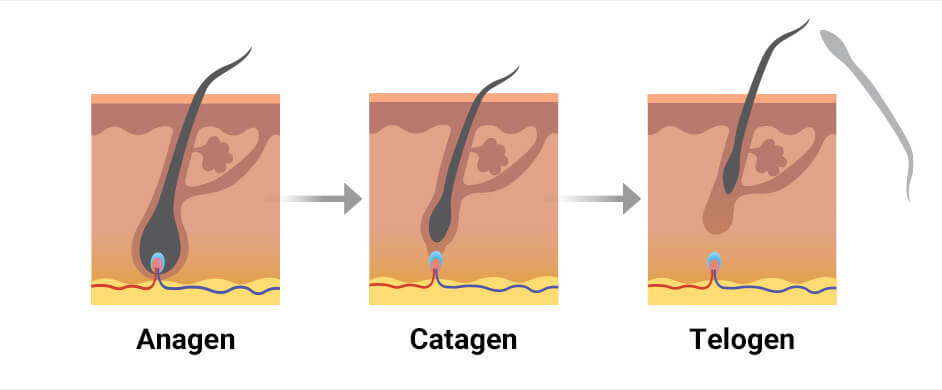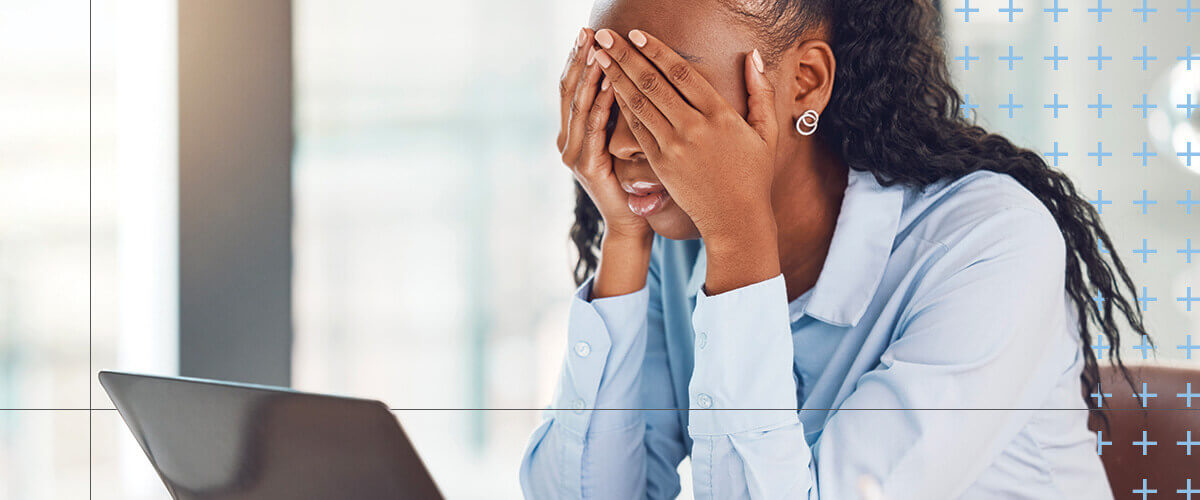The Impact of Stress on Your Hair

Take the example of a pregnant woman : during pregnancy, her hair may look healthy, shiny, and voluminous. This transformation is not at all unusual. It is primarily due to a hormone called estrogen, which extends the active growth phase of the hair (anagen phase) during gestation.
However, excessive extension of the anagen phase can synchronize the hair cycle. This is why, after childbirth, when estrogen levels decrease, many hairs fall out simultaneously.
Stress-Induced Hair Loss : How Long Until Your Hair Grows Back?
How to Prevent Stress-Related Hair Loss

Relaxation Techniques
Relaxation practices such as meditation, yoga, or soothing hobbies (walking in nature while listening to your favorite music).

Healthy and Balanced Diet
The health of your hair largely depends on the nutrients and vitamins present in your diet. The Mediterranean diet, for example, is an excellent choice as it includes foods such as fish, whole grains, vegetables, fruits, eggs, legumes, dark chocolate, cocoa, and olive oil.

Quality Sleep
Restorative sleep plays a crucial role in stress management. Adopt a regular sleep routine, create a conducive environment for rest, and avoid electronic stimuli before bedtime to promote peaceful and revitalizing nights.

Regular Physical Exercise
Regular physical activity releases endorphins, improving your mood and reducing stress. Find an activity you enjoy, whether it's the gym, dancing, swimming, or walking.

Professional Assistance
Seeking help from a professional, such as a psychologist or a therapist in counseling, can also prove beneficial when needed.
Should I Be Concerned?
Various hair conditions, such as diffuse alopecia or areata alopecia, can lead to increased hair loss. Remember that it’s normal to lose up to 100 hairs per day. If you notice abnormal hair loss, it’s recommended to consult a professional from Groupe Médical PAI, who can advise and guide you to the most suitable solution for your specific needs.x
